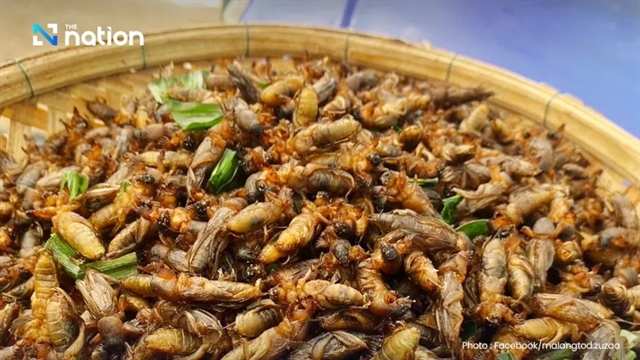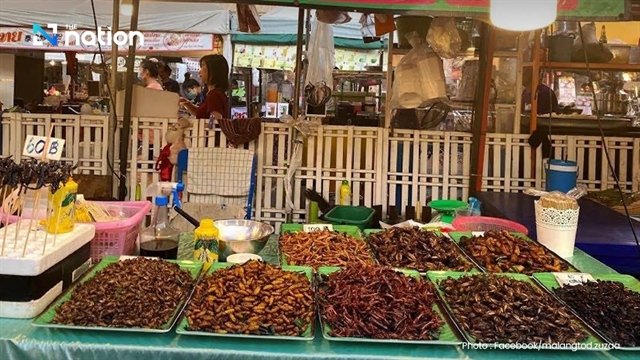 World
World


|
| Nation eyes larger share of sustainable protein sector expected to surge 25% annually. PHOTO: COLLECTED/THE NATION |
BANGKOK – Thailand is positioning itself to capitalize on the rapidly expanding global edible insect market, which experts predict will grow by 25.1% annually between 2025 and 2030, as consumers worldwide increasingly turn to sustainable protein alternatives.
Already ranked as the world’s sixth-largest insect exporter, Thailand’s deep-rooted expertise in insect farming and growing domestic market acceptance provide a solid foundation for expansion in this emerging sector.
The shift toward insect protein comes as environmentally conscious consumers seek alternatives to traditional livestock farming, which generates approximately 14.5% of global greenhouse gas emissions.
By comparison, insect farming produces remarkably lower environmental impacts:

|
| PHOTO: COLLECTED/THE NATION |
While rising global temperatures pose challenges for traditional livestock—potentially reducing yields by up to 38%—many insect species actually thrive in warmer climates, potentially accelerating production cycles.
This climate resilience could further strengthen Thailand’s position in the global market as traditional protein production faces increasing challenges from climate change.
For Thai farmers, insect farming represents a potentially lucrative opportunity:
Market Growth and Challenges
The global edible insect market, valued at US$1.35 billion in 2024, is gaining traction particularly in Europe, the Americas, and East Asia.
Insects are increasingly being utilized in protein powders, bars, and as ingredients in animal feed.
Thailand currently accounts for 6% of the world’s total insect export value (approximately US$586,000), with the United States as the primary destination market.
Despite this potential, consumer acceptance remains a significant hurdle, with unfamiliarity and food safety concerns presenting obstacles to widespread adoption. The broader impacts of large-scale production also require careful monitoring.
Nevertheless, with appropriate government support and promotion of both domestic consumption and exports, Thailand’s edible insect sector could become a cornerstone of a more sustainable food system, generating substantial income while reducing environmental impacts. THE NATION/ANN